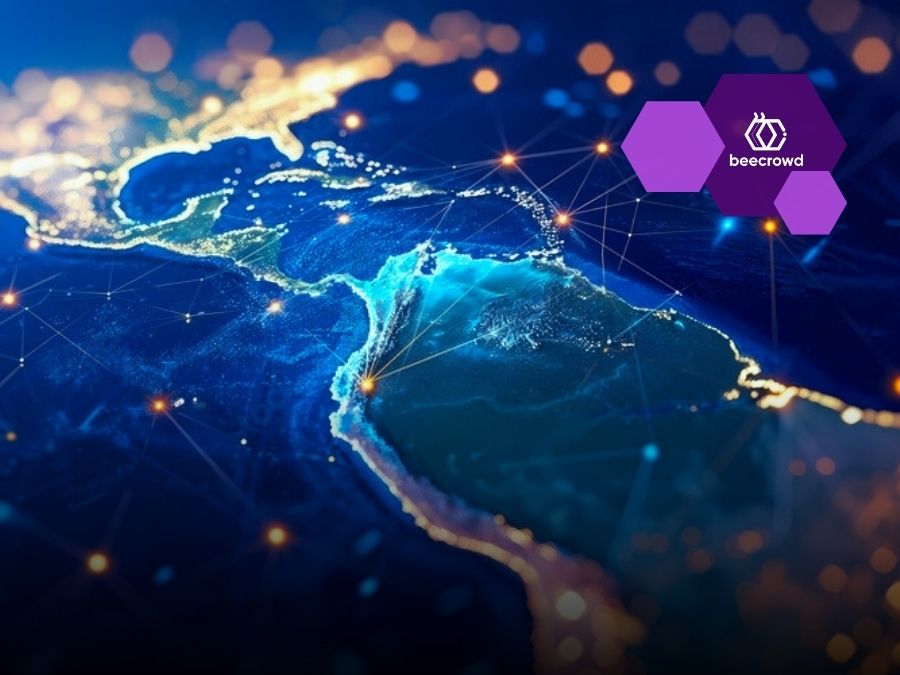Innovation is the current currency! Therefore, it is essential that we delve into the nuances of the forces and innovations that are fundamentally redefining the way we understand and practice work, especially in the area of Information Technology.
These innovations and transformations are based on four main foundations:
1) Accelerating productivity through Artificial Intelligence
2) The introduction and expansion of Web3 business models
3) The generation of workers who blur the boundaries between the real and the digital world
4) Social changes in the way we all perceive work
Each of these foundations helps to show why conventional work paradigms, which previously confined us to fixed hours and geographic barriers, have been substantially dispelled by the pandemic, globalization, and the rise of the flexible economy.


1) Accelerating productivity through Artificial Intelligence
Generative AI technologies (GenAI) have been accelerating productivity and transcending the simple automation of tasks. We are witnessing a metamorphosis in decision-making, driven by advanced algorithms that not only process data, but learn, evolve, and refine their operations over time.
The impact of AI on the job market is a complex and multifaceted issue. AI-driven automation has the potential to significantly transform the nature of many occupations, replacing routine and repetitive tasks. This, in turn, raises concerns about the potential loss of traditional jobs, especially in sectors more susceptible to automation. However, the true promise of AI lies in the synergistic collaboration between machines and humans. Rather than simply replacing jobs, AI can be integrated to enhance human capabilities, generating a more positive impact and opening up new opportunities.
AI’s potential to optimize routine tasks allows human workers to focus on more complex and creative aspects of their roles. This means that, while AI performs predictable and repetitive tasks, humans can engage in activities that require empathy, critical thinking, complex problem solving and creativity, characteristics that are intrinsically human and that are still difficult for machines to replicate.
Furthermore, the successful implementation of AI creates jobs related to its construction, maintenance, and oversight. The demand for professionals capable of developing algorithms, interpreting data, ensuring ethics in the use of AI and making decisions based on human judgments is becoming increasingly relevant.


2) The introduction and expansion of Web3 business models
A second fundamental force is the introduction of new business models. With the rise of remote and decentralized work, there is also a distribution of authority and responsibilities, promising to make work activities more adaptable to individual needs and collective objectives. These technological innovations, in large part, make use of Web3.
The evolution of Web3 brings a diversity of new business models driven by technologies such as blockchain, decentralized protocols (digital systems operating without a central authority) and user ownership of data. The flexible economy contributes to the formation of a global talent market, granting independent professionals, who are not conventional employees, greater autonomy and control over their earnings and livelihood. With proper implementation, Web3 technologies have the potential to contribute to solving several business challenges and current worker frustrations.
By removing intermediaries and managers, these technologies allow people to collaborate more directly with customers, promoting a more transparent and efficient relationship. Blockchain-based smart contracts can automate and ensure fair compensation for work, reducing disputes and ensuring timely payments. Furthermore, Web3 enables the real intellectual property of digital work, such as algorithms, codes, artistic creations, music and digital content in general, through the use of technologies such as blockchain and NFTs. This allows for greater control and fairer compensation for creators.


3) The generation of workers who blur the boundaries between the real and digital world
The third driving force of innovation are the Youthquakers: the new generation of workers.
Youthquake is a term that emerged in the 60s, in Vogue Magazine, to describe significant social, political and cultural changes driven by youth. The word is a portmanteau of Youth and Quake, suggesting a profound and seismic transformation caused by the actions and ideas of young people.
It is a cultural and technological revolution. These new generation Z professionals are also known as “digital natives”, as they are immersed in a digital world from a very early age. They not only utilize technology but have incorporated it as an extension of their identity.
To meet the expectations of this new generation, organizations need to take the lead in creating work environments that go beyond traditional structures. The demand for flexibility is central, and work environments must be designed to accommodate this need, offering remote collaboration and mobility options. Technology plays a crucial role in this scenario, requiring companies to be at the forefront of integrating emerging technological solutions.
Remote work, for example, is not just a convenience, but a necessity for this new generation of professionals. Effective virtual communication tools, online collaboration platforms and systems that enable teamwork, regardless of geographic location, become essential. Mobility is another fundamental facet, as these workers expect the flexibility of carrying out their tasks in different locations, adapting to different rhythms of life.


4) Social changes in the way we all perceive work
Social change in the perception of work transcends the mere financial transaction. The search for purpose and meaning at work is a driving force, and companies are increasingly responding to this call. In addition to promoting a culture that values well-being and diversity, these companies are integrating sustainable practices into their operations, recognizing the social responsibility that accompanies the impact of technology.
Promoting a culture that embraces well-being involves offering benefits that go beyond traditional ones, incorporating mental health programs, flexible schedules, ergonomic workspaces and initiatives that foster a healthy balance between professional and personal life. Companies are recognizing the importance of providing a work environment where employees feel supported, valued and encouraged to thrive not only professionally, but also personally.
Furthermore, the integration of sustainable practices into business operations reflects an awareness of the social responsibility inherent in the impact of technology. Companies are adopting ecologically sustainable approaches, reducing carbon footprints, promoting energy efficiency and adhering to ethical standards in the production of their products or services. This commitment to sustainability not only contributes to environmental preservation, but also reflects a genuine concern for global well-being.
The intersection between the business world and these 4 transformative forces is not just a confluence of tools and concepts, but a unique opportunity to lead change. The corporate world isn’t just adapting: it’s actively shaping the future of work. Those who understand, embrace, and lead this transformation will be the architects of tomorrow.


